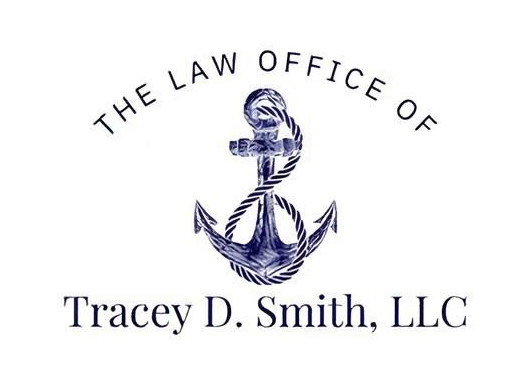September 8, 2025
Estate planning is often one of those responsibilities that people know they should address but frequently put off. In fact, according to Planned Giving, 63% of individuals earning over $80,000 annually cite procrastination as the primary reason for delaying estate planning. However, understanding estate law and how it affects you and your loved ones is essential to ensuring your assets are protected and your wishes are honored. Whether you are considering writing a will for the first time, setting up a trust, or addressing more complex financial matters, estate law provides the legal framework to guide these decisions. This blog will help you better understand the basics of estate law, its purpose, and why working with a trusted attorney can make all the difference.
Defining Estate Law
Estate law is the area of law that governs how a person’s assets, debts, and property are managed during their lifetime and after their death. It encompasses a wide range of legal tools and processes designed to ensure that an individual’s wishes are carried out. These include drafting wills, establishing trusts, naming beneficiaries, and appointing powers of attorney. Estate law also determines how assets are distributed if someone passes away without a valid will, a process known as intestacy. By providing structure and guidance, estate law helps reduce uncertainty and conflict during what can be an emotionally difficult time for families.
Understanding the Importance of Wills
A will is often the cornerstone of estate planning. This legal document allows you to clearly state how your property and assets should be distributed upon your death. It can also designate guardians for minor children and outline specific wishes regarding personal belongings. Without a will, state laws determine how your assets are divided, which may not align with your personal intentions. Having a valid will ensures that your loved ones are provided for and that your estate is handled according to your preferences. Estate law provides the structure to ensure wills are legally enforceable, making them a vital tool for planning.
Using Trusts as a Planning Tool
Trusts are another essential component of estate planning. They allow assets to be transferred to a trustee, who manages them on behalf of designated beneficiaries. Trusts can be used to reduce taxes, protect assets from creditors, or provide ongoing support for minors or individuals with special needs. They also allow for greater privacy than wills, as trusts generally do not go through probate. Estate law governs the creation and administration of trusts, ensuring that they are managed in accordance with the grantor’s wishes. Trusts can be tailored to fit a variety of circumstances, making them one of the most flexible planning tools available.
Understanding Probate and Estate Administration
Probate is the legal process through which a deceased person’s estate is validated and settled. During probate, the court verifies the will (if one exists), ensures debts and taxes are paid, and oversees the distribution of assets to heirs. While probate serves an important function, it can also be time-consuming and costly. Estate law provides guidelines to streamline this process, but many individuals use estate planning strategies, such as establishing trusts, to minimize or avoid probate altogether. Understanding how probate works is an essential part of navigating estate law and planning effectively.
Using Power of Attorney and Healthcare Directives
Estate law isn’t only about what happens after you pass away—it also addresses situations where you may become unable to make decisions for yourself. A power of attorney is a legal document that appoints someone to manage your financial or legal affairs if you become incapacitated. Similarly, healthcare directives (or living wills) specify your medical treatment preferences and appoint someone to make healthcare decisions on your behalf. These documents ensure your wishes are respected and relieve loved ones from having to make difficult decisions without guidance.
Considering Guardianship
Parents with minor children often view estate planning through the lens of guardianship. Estate law allows you to designate who will care for your children in the event of your death. Without a legal guardian named, the courts will make this decision, which may not reflect your preferences. Naming a guardian in your will ensures that your children are raised by someone you trust, providing stability and peace of mind.
Understanding Taxes and Estate Law
Another critical aspect of estate law involves taxation. Federal and state governments may impose estate or inheritance taxes, depending on the size of the estate and where you live. Proper planning can reduce the tax burden on your beneficiaries, allowing them to receive more of your legacy. Tools such as trusts, charitable donations, and strategic gifting can all help minimize taxes. Estate law attorneys are skilled at navigating these complexities and ensuring that tax-saving strategies are applied correctly.
Understanding Common Misconceptions About Estate Law
Many people delay estate planning because they assume it only applies to the wealthy. In reality, estate law is relevant for anyone who owns property, has financial accounts, or wishes to provide for loved ones. Another misconception is that estate planning is a one-time task. In fact, plans should be reviewed regularly and updated as circumstances change, such as marriage, divorce, the birth of children, or significant financial shifts. Recognizing and addressing these misconceptions helps individuals take estate law more seriously and avoid procrastination.
Choosing the Right Attorney
Estate law can be complex, and working with an experienced attorney is crucial. A knowledgeable lawyer can help you create a comprehensive plan tailored to your unique needs, whether that involves drafting a simple will or structuring complex trusts. They can also provide guidance on minimizing taxes, navigating probate, and ensuring that your documents comply with state laws. When selecting an attorney, look for someone with experience in estate law, a strong reputation, and a willingness to answer your questions. Building a relationship with the right professional is key to successful estate planning.
Benefitting Estate Law
Ultimately, estate law is about more than just distributing assets—it’s about protecting families. It ensures that children are cared for, that healthcare decisions reflect your wishes, and that your legacy is preserved for future generations. Proper planning reduces stress during difficult times, helps families avoid conflict, and provides financial security for loved ones. By addressing these matters proactively, you create a lasting impact that extends beyond material possessions.
Keeping Your Plan Updated
Estate planning is not a one-time task but an ongoing process. Life changes, such as marriage, divorce, new children or grandchildren, or changes in financial circumstances, all affect your estate plan. Estate law provides the framework to update your documents as needed, ensuring they remain accurate and effective. Reviewing your plan every few years—or after significant life events—keeps it aligned with your current goals and circumstances.
Estate law may seem overwhelming at first, but understanding its basics makes the process far less intimidating. From drafting wills and creating trusts to addressing healthcare directives and minimizing taxes, estate law provides the tools needed to protect your assets and support your loved ones. Remember that procrastination is the most common obstacle, but taking action now can prevent confusion and hardship later. At The Law Office of Tracey D Smith, LLC, we are dedicated to guiding individuals and families through the estate planning process with care and expertise. Contact us today to begin building a plan that secures your legacy and ensures peace of mind for you and your loved ones.


